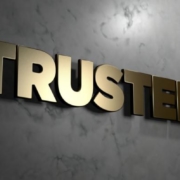Do you really want to be a trustee for life?
All trustees have tasks and duties that have to be performed on a regular basis, even in small family trusts. It’s a burden of responsibility nobody can reasonably be expected to bear for life. This raises questions. When is the right time to walk away? What happens if an ageing trustee is no longer mentally competent? Here are the answers.





